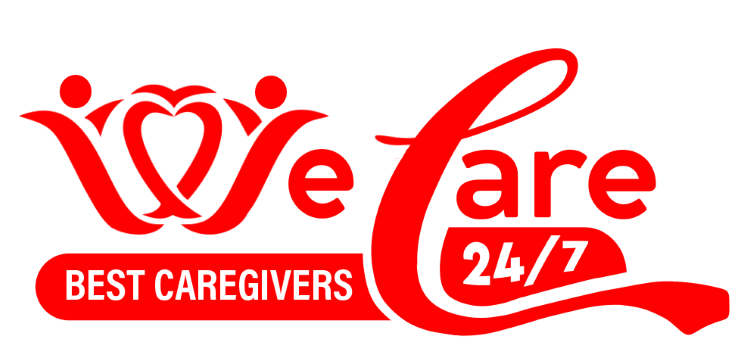How to Finance Home Care in NJ: Your Step-by-Step Guide

Navigating Home Care Costs in New Jersey: A Comprehensive Financing Guide
Deciding on in-home care for yourself or a loved one in New Jersey marks a significant step towards maintaining comfort and independence. While the benefits of receiving care within the familiar surroundings of home are immense, understanding the financial aspects can often feel daunting. Many New Jersey families grapple with questions about affordability, eligible programs, and the best ways to cover these essential services.
At WeCare Home Caregivers, we believe that financial considerations should not be a barrier to quality care. This guide is designed to empower you with knowledge, offering a step-by-step approach to understanding and financing home care in the Garden State. We’ll explore various avenues, from government assistance to private options, helping you make informed decisions for your unique situation.
Understanding Home Care Costs in New Jersey
The cost of home care in New Jersey varies based on several factors, including the type of care needed (e.g., personal care, skilled nursing, companionship), the number of hours per day or week, and the specific agency. According to the Genworth Cost of Care Survey 2023, the median cost of homemaker services in New Jersey is approximately $31.00 per hour, while home health aide services are around $32.00 per hour. These figures can quickly add up, making a proactive financial strategy essential.
Keep in mind that these are median costs. Your actual expenses will depend on the specific services tailored to your needs. This guide will help you identify resources that can help manage these expenses, ensuring access to the care required without undue financial strain.
Step 1: Assess Your Current Financial Situation
Before exploring external funding options, take stock of your personal financial landscape. This initial assessment provides a clear picture of your current assets, income, and potential resources. It also helps identify any existing insurance policies that might offer coverage.
- Review Income and Expenses: Calculate your monthly income from all sources (social security, pensions, investments, etc.) and itemize your current expenses. This helps determine how much you can comfortably allocate towards home care from your regular budget.
- Inventory Assets: List all liquid assets (savings accounts, checking accounts, CDs) and non-liquid assets (real estate, stocks, bonds, retirement accounts). Understanding your asset base is important for various programs and financial planning strategies.
- Check Existing Insurance Policies: Gather information on any health insurance, long-term care insurance, or life insurance policies you or your loved one holds. Pay close attention to their benefits and limitations regarding in-home care.
A thorough self-assessment lays the groundwork for identifying which financing options are most suitable for your circumstances.
Step 2: Explore Government Programs and Assistance
New Jersey offers several state and federal programs designed to help seniors and individuals with disabilities finance home care services. These programs often have specific eligibility criteria related to income, assets, and care needs.
Medicaid (NJ FamilyCare) for Long-Term Services
Medicaid, known as NJ FamilyCare in New Jersey, is a significant resource for low-income individuals. For those needing long-term care, the Managed Long-Term Services and Supports (MLTSS) program is particularly relevant. MLTSS delivers a wide array of home and community-based services through managed care organizations (MCOs).
Eligibility for MLTSS is complex, generally requiring individuals to meet financial criteria (income and asset limits) and medical necessity for nursing facility level of care. This program can cover personal care, homemaker services, adult day health services, and more, enabling individuals to remain in their homes. For detailed information on eligibility and application, visit the NJ Department of Human Services MLTSS page.
Program of All-Inclusive Care for the Elderly (PACE)
PACE provides comprehensive medical and social services to frail seniors who are eligible for nursing home care but wish to remain in their community. It integrates Medicare and Medicaid benefits to offer a complete package of care, including home care, medical appointments, therapy, and social activities. Eligibility generally requires being 55 or older, living in a PACE service area, and meeting a nursing home level of care. You can find more about PACE in New Jersey through the Medicaid.gov PACE section or by searching for local PACE providers in NJ.
Veterans Affairs (VA) Benefits
Veterans and their surviving spouses may be eligible for various VA benefits that can help cover home care costs. These include:
- Aid & Attendance Pension: This enhanced pension is available to veterans and surviving spouses who require the aid of another person for daily activities or are housebound. It can provide substantial financial assistance for in-home care.
- VA Community Care: Through programs like Home Health Aide and Homemaker Care, the VA can provide services to eligible veterans who need assistance with activities of daily living (ADLs) or instrumental activities of daily living (IADLs).
Eligibility for VA benefits depends on service history, income, assets, and medical need. Contacting a local VA office or visiting the U.S. Department of Veterans Affairs website is the best way to explore these options.
New Jersey State-Specific Programs
Beyond federal programs, New Jersey offers specific initiatives that may assist with home care expenses:
- NJ Statewide Respite Care Program: This program provides respite services to caregivers of functionally impaired adults, offering temporary relief and potentially covering costs for in-home assistance. More information is available via the NJ Department of Human Services.
- Pharmaceutical Assistance to the Aged and Disabled (PAAD) and Senior Gold: While primarily focused on prescription drug costs, these programs reflect New Jersey’s commitment to supporting its senior population and indicate other available state resources for seniors.
Connecting with your county’s Area Agency on Aging (AAA) or the NJ Department of Human Services Division of Aging Services can provide localized guidance on these and other potential programs.
Step 3: Leverage Insurance Policies
Existing insurance policies can be a valuable source of funding for home care, though their coverage varies significantly.
Long-Term Care Insurance (LTCI)
If you or your loved one purchased a long-term care insurance policy, now is the time to review its benefits. These policies are specifically designed to cover the costs of long-term care services, including in-home care, assisted living, and nursing home care. Look for details on:
- Daily Benefit Amount: The maximum amount the policy will pay per day for care.
- Benefit Period: The total duration the policy will pay benefits (e.g., 3 years, 5 years, lifetime).
- Elimination Period: The number of days you must pay for care out-of-pocket before the policy begins to pay benefits.
- Triggers for Benefits: What conditions (e.g., inability to perform 2 out of 6 ADLs) must be met to activate benefits.
Contact your insurance provider directly to understand your specific policy’s coverage and claim process.
Life Insurance Policy Conversions and Riders
Some life insurance policies offer options that can be leveraged for long-term care needs:
- Accelerated Death Benefit (ADB) Riders: Many life insurance policies include an ADB rider, allowing the policyholder to access a portion of the death benefit while still living if they are terminally ill or require long-term care. This can provide immediate funds for home care.
- Life Settlement: You can sell your life insurance policy to a third party for a lump sum, which is less than the death benefit but more than the cash surrender value. This option converts a non-liquid asset into cash for care.
- Viatical Settlement: Similar to a life settlement, but specifically for policyholders with a life expectancy of two years or less.
Consult with a financial advisor or the insurance company to understand the implications of these options, as they reduce or eliminate the policy’s death benefit.
Health Insurance (Medicare & Private Plans)
While Medicare and most private health insurance plans do not extensively cover non-medical, long-term home care (like personal care or companionship), they do cover certain skilled home health services when medically necessary and prescribed by a doctor. This typically includes skilled nursing care, physical therapy, occupational therapy, and speech-language pathology, often for a limited duration after a hospital stay.
It is important to differentiate between medical home health care and non-medical home care. For the latter, you’ll need to explore other financing options mentioned in this guide.
Step 4: Explore Private Funding Options
For many families, private funding plays a significant role in covering home care costs, either independently or in conjunction with other resources.
Personal Savings and Investments
Utilizing personal savings, retirement accounts (like 401ks or IRAs), and investment portfolios is a common approach. Discussing the most tax-efficient way to draw from these funds with a financial advisor is highly recommended.
Home Equity Options
For homeowners, the equity built in their property can be a significant asset:
- Reverse Mortgage: A reverse mortgage allows homeowners aged 62 and older to convert a portion of their home equity into tax-free cash, a line of credit, or monthly payments, without having to sell the home or make monthly mortgage payments. The loan is repaid when the last borrower leaves the home permanently. This can be a viable option for long-term home care financing.
- Home Equity Line of Credit (HELOC): A HELOC functions like a revolving credit line secured by your home. You can borrow funds as needed, up to a certain limit, and make payments on the amount borrowed. Interest rates can be variable, so it is important to monitor the market.
Both options have implications for your estate and should be carefully considered with professional guidance.
Family Contributions and Agreements
In many New Jersey families, adult children or other relatives contribute to the cost of care. This can be an informal agreement or formalized through a Personal Care Agreement or Elder Care Contract. These contracts outline the services provided by family members, the compensation, and are important for tax and Medicaid planning purposes. Consulting an elder law attorney can help structure such agreements properly.
Step 5: Consider Tax Deductions and Credits
Certain home care expenses may be tax-deductible as medical expenses, potentially offering a way to recoup some costs. If you itemize deductions, medical expenses exceeding a certain percentage of your Adjusted Gross Income (AGI) can be deducted. This includes payments for home care services provided for medical reasons or to assist with activities of daily living for someone who is chronically ill.
Keep meticulous records of all medical and care-related expenses. Consult with a tax professional to understand your eligibility and maximize any potential deductions.
Step 6: Plan Ahead and Seek Professional Guidance
Proactive planning is paramount when it comes to financing home care. The earlier you begin to explore options, the more flexibility and choices you will have. Consider assembling a team of professionals to guide you through the complexities:
- Elder Law Attorneys: These legal professionals specialize in issues affecting seniors, including Medicaid planning, asset protection, estate planning, and drafting personal care agreements. They can help navigate the legal and financial intricacies of long-term care.
- Financial Planners: A financial planner specializing in retirement and long-term care planning can help you assess your current financial standing, project future costs, and develop a sustainable funding strategy utilizing various assets and income streams.
- Care Managers: While not directly involved in financing, professional care managers can assess needs, coordinate services, and often have extensive knowledge of local resources and programs that might offer financial assistance or support.
Many New Jersey families find peace of mind and more effective solutions by working with experts who understand the unique landscape of senior care financing in the state.
WeCare Home Caregivers: Your Partner in Home Care
At WeCare Home Caregivers, we understand that financing home care is a significant consideration for New Jersey families. Our commitment extends beyond providing exceptional care; we aim to be a resource for our community, offering insights and support as you navigate these important decisions.
We encourage you to use this step-by-step guide as a starting point. While we do not provide financial advice, our team is available to discuss your care needs and help you understand how our services can be tailored to your budget and preferences. Contact us today for a consultation. We are here to help you ensure your loved ones receive the dignified, compassionate care they deserve, right where they feel most comfortable: at home in New Jersey.



